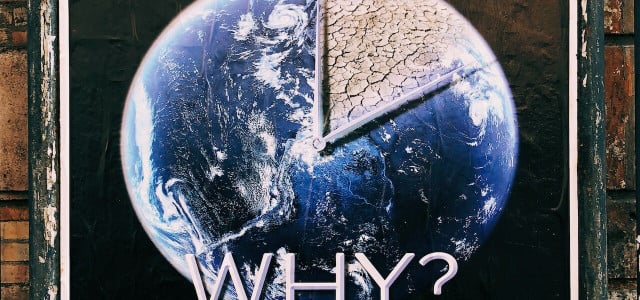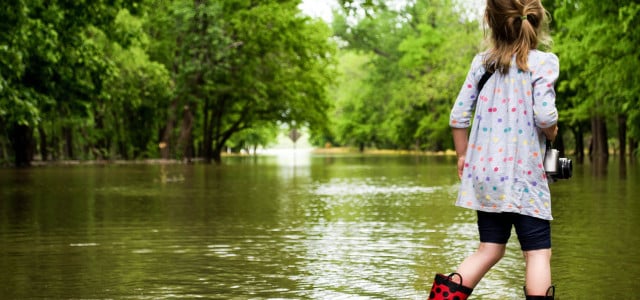Global warming vs climate change — can the terms be used interchangeably, or are they completely different? Let’s dive in and find out what they mean.
It’s easy to get bogged down by eco-anxiety when the media is filled with doom and gloom about climate change and global warming. Whether you’re trying to keep up for your own sake, or trying to fight climate denial, the information out there can be a bit confusing.
One thing is certain, don’t listen to anything coming from the most dangerous climate change deniers in America. Look for reputable sources to help you get your facts straight. Check out the 8 best books about climate change, or our list of top sustainability and climate change podcasts to get started. Below, we’re taking a look at global warming vs climate change to help distinguish their similarities and differences.
Global Warming vs. Climate Change
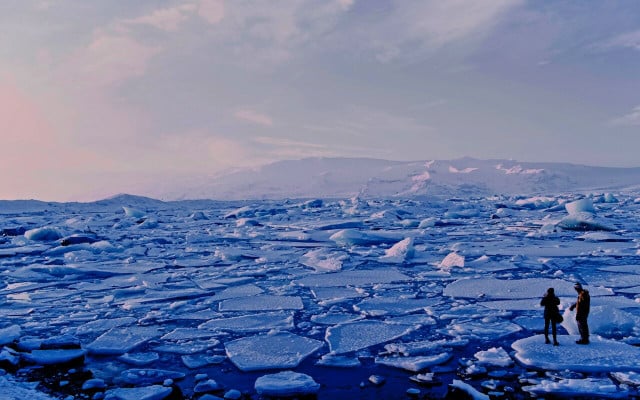
When looking at global warming vs climate change, you may think they’re one and the same. While there is a bit of overlap between the two terms, there are key differences.
- Global warming specifically refers to the progressive increase in the surface temperature of Earth.
- Climate change refers to a much broader range of planetary changes ranging from rising sea levels to variations in weather patterns.
It’s worth noting that global warming is a contributing factor to climate change, so although they are closely related, they are not the same thing. Let’s take a deeper look at both to truly understand what sets one apart from the other.
A Brief History of Climate Change
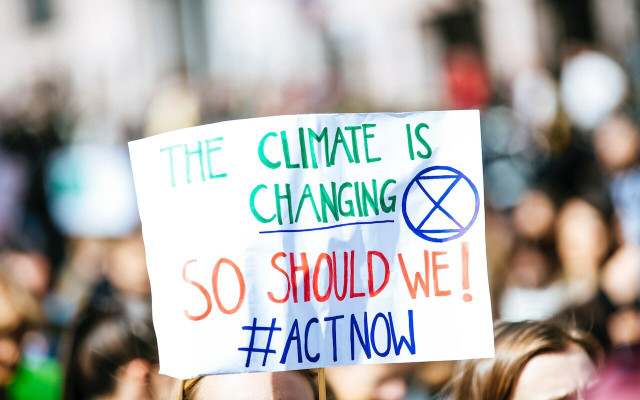


To start, let’s take a look at a brief timeline of the history of global warming vs climate change to establish a bit of background knowledge.
- 1800: Naturalist Alexander von Humboldt noted that deforestation caused regional atmospheric temperatures to rise.
- 1896: A Swedish physical chemist, Svante Arrhenius, hypothesized that increased CO2 emissions in the atmosphere would increase the mean global temperature by several degrees.
- 1938: Scientist Guy Callendar linked carbon dioxide increases in Earth’s atmosphere to global warming.
- 1954: Scientist Charles Keeling took the first measurement of rising CO2 levels in the atmosphere.
- 1965: President Lyndon B. Johnson was warned by the US President’s Science Advisory Committee of the dangers of global warming caused by human activity.
- 1979: The World Climate Conference in Geneva kicked off international cooperation on climate change.
- 1988: The Intergovernmental Panel on Climate Change (IPCC) was established by the United Nations to study the causes and impacts of climate change.
- 1992: The United Nations Framework Convention on Climate Change (UNFCCC) was signed in Rio de Janeiro.
- 1997: The Kyoto Protocol was adopted, setting binding targets for reducing greenhouse gas emissions.
- 2015: The Paris Climate Agreement was signed with the aim to keep global temperature rise below 2 degrees Celsius above pre-industrial levels.
- 2018: Greta Thunberg went on a school strike for climate and inspired youth to get involved in environmental activism — resulting in the Fridays for Future movement.
- 2021: The Glasgow Climate Act was developed at COP26.
- 2022: COP27 took place in Egypt — learn what happened at COP27.
What is Global Warming?
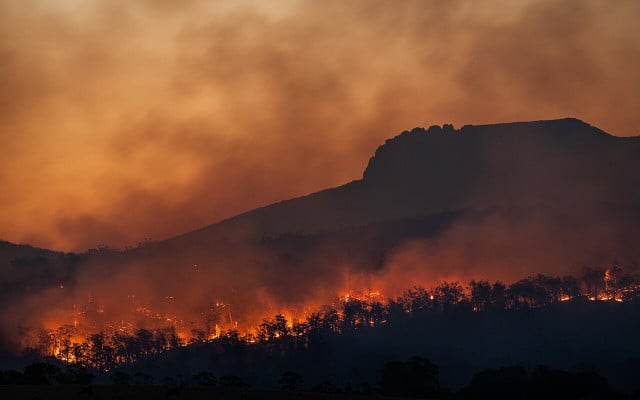


The term global warming was popularized in 1975 due to Wallace Broecker’s paper published that same year: Climatic Change: Are We on the Brink of a Pronounced Global Warming?. However, global warming is a phenomenon that has been studied and researched intensively over the last several decades.
While the planet has always undergone periods of warming and cooling, reliable data from NASA’s Goddard Institute for Space Studies, the National Oceanic and Atmospheric Administration’s National Climactic Data Center and the UK Meteorological Office’s Hadley Centre only goes back to 1880.
Global warming refers to the steady increase in the average surface temperature of the Earth, primarily as a result of greenhouse gas (GHG) emissions. These gases trap heat and cause temperatures to increase over time. Increased GHG emissions are caused by human activities such as deforestation, industrial processes, using non-renewable resources and the burning of fossil fuels.
The seemingly insignificant increase in temperature can have enormous effects, including changes in precipitation patterns, rising sea levels, more frequent and severe heat waves, and more extreme weather events, such as hurricanes, wildfires and floods.
Read on: What’s the Difference Between a Tornado and a Hurricane?
What is Climate Change?



Understanding the difference between weather and climate is important when it comes to discussing climate change. Weather refers to the short-term patterns influenced by temperature, winds, pressure and moisture. Climate, on the other hand, is the general state of atmospheric conditions over an extended period of time.
Climate change refers to the long-term shift in temperature and weather patterns. This can occur due to natural causes like changes in natural variations in the Earth’s orbit and tilt, solar radiation, and volcanic eruptions, but these factors are not the primary cause of the climate change we are seeing today. Fossil fuels, particularly their CO2 emissions, are the largest contributors to climate change.
A shift in climate, however incremental, has cascading effects on every living thing on the planet. Climate change is expected to increase the frequency and severity of extreme weather events which will be detrimental to the future of the planet.
Climate change can result in certain places receiving colder than normal temperatures, while other places see higher than average temperatures. A phenomenon known as “season creep” has been recorded around the globe, wherein the timings of the seasons have started to shift. This can be seen through occurrences such as earlier indications of spring and milder or shorter winters and has catastrophic effects on wildlife.
Global Warming vs. Climate Change: Behind the Debate
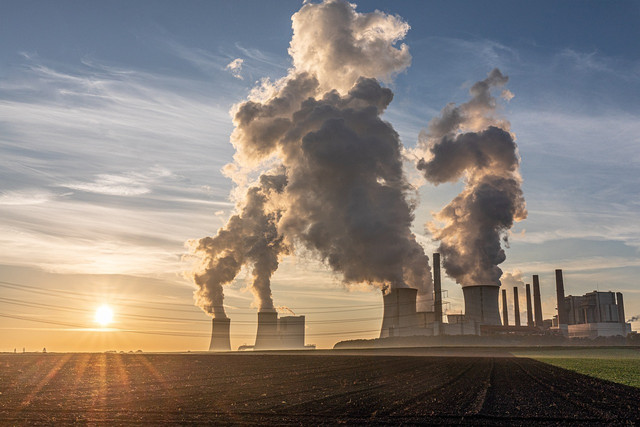


After looking at the two terms in depth, it’s clear to see that global warming and climate change are not the same thing. No matter which term is used, don’t let it discredit the associated information. According to a research analysis, conservatives are more likely to use the term “global warming” while liberals tend to use “climate change”.
- Scientists tend to use the term climate change as opposed to global warming as it’s a more accurate representation of the issue facing the planet.
- Media, particularly in the US, tends to use the term global warming as a scare tactic to help boost news stories.
Regardless of the terminology used, it’s important to start incorporating everyday ways to prevent climate change into your life. You can do that by supporting environmental organizations, being a good environmental steward, pursuing a career in environmental science, studying sustainability at university, or educating your network about the climate crisis.
Read more:
- The Top 5 Human Activities That Contribute to Air Pollution
- Is Degrowth the Economic Solution to Climate Change?
- What Is a King Tide & the Connection to Climate Change
Do you like this post?






